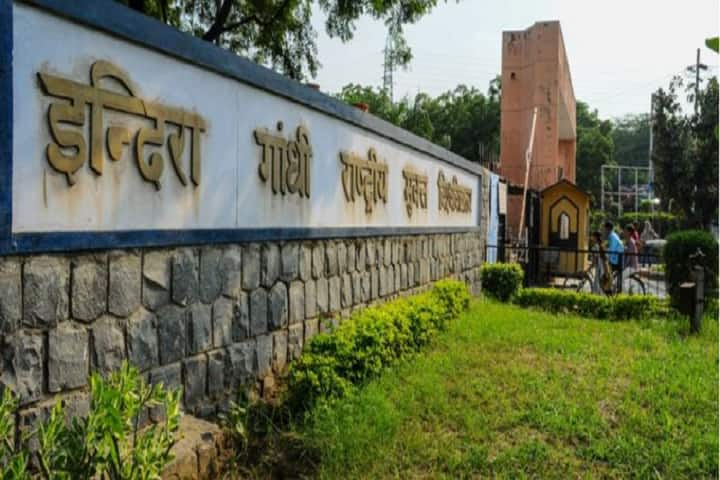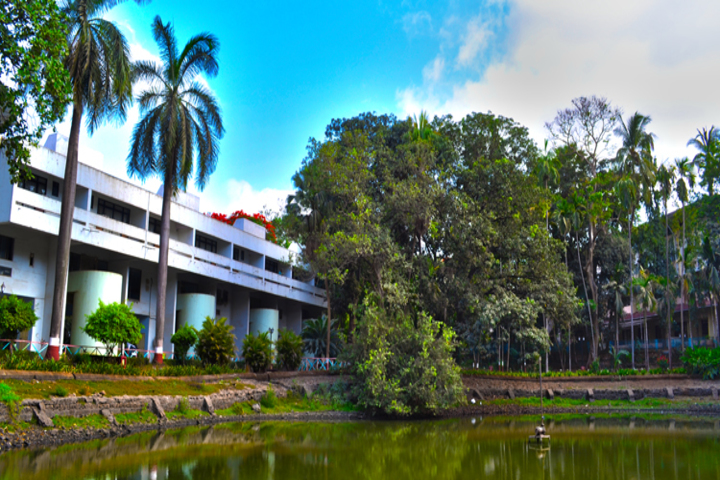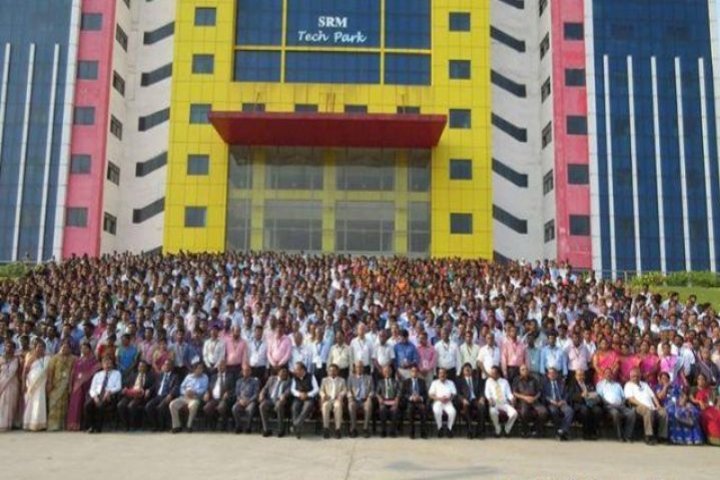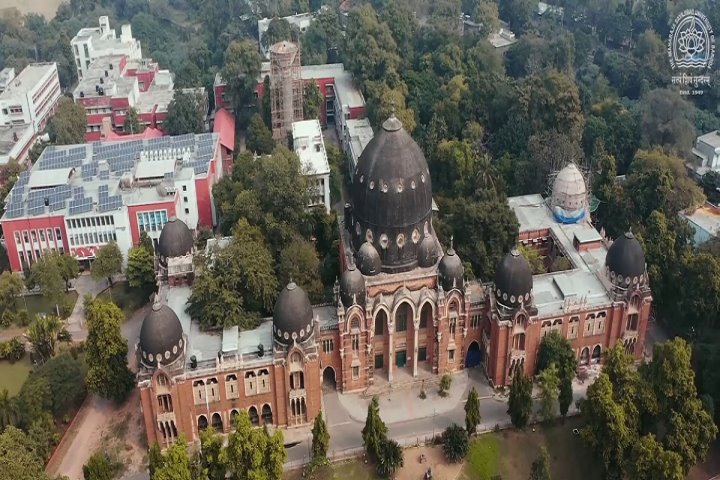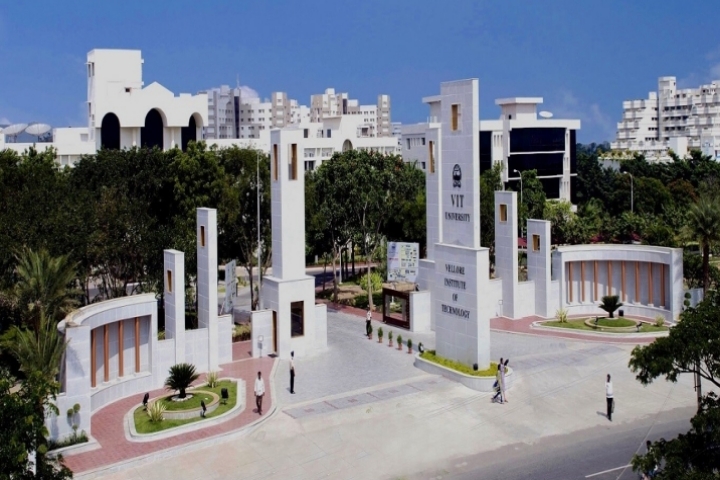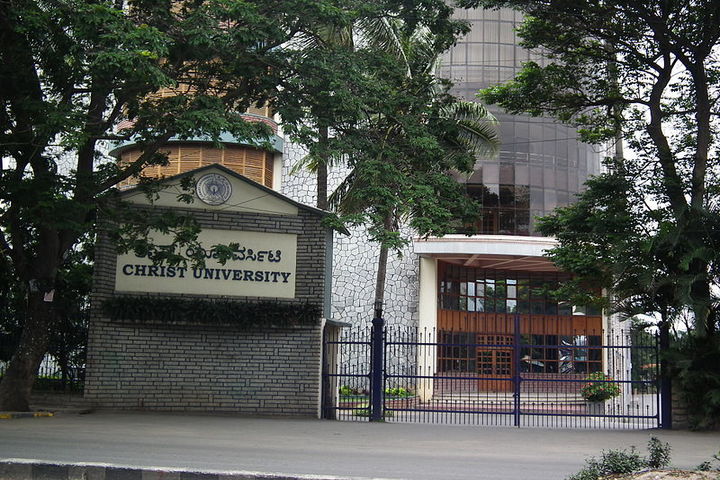What is Architecture, Town and Regional Planning
Architecture, Town and Regional Planning- The fundamental process of planning, designing, constructing structures or buildings is known as architecture. It is sometimes referred to as an art because a piece of construction eventually becomes a part of the cultural heritage. However, as a field of study, architecture, town and regional planning is both art and science as it requires both artistic skills and knowledge of science.
Urban planning, also termed as town planning, is more of a technical process of design and development aimed at optimal use of land and building of infrastructure in public areas. The most important concern out here is public welfare along with the protection of the environment. The planning mostly helps to build rural and suburban areas, settling up communities by facilitating the supply of water and other resources. Regional planning is nothing but urban planning but on a broader scale. It covers aspects like the optimal use of land, protection of farmland, creation of industrial space, transportation hubs and cities, etc.
The basic principle of architecture, town and regional planning at the macro level is to resist any kind of development in the floodplains and earthquake vaults and utilize them in some other ways. Allocation of land for different purposes, laying down regional level policies and even-zoning of laws and policies for the best use of the land- all come under the purview of this course.
Architecture, Town and Regional Planning: Degrees and Levels
Undergraduate level (5 years): This course spans over 5 years and can be pursued after the completion of class 12. It is an integrated course. At the end of it, a student is awarded a B.Arch degree in architecture, town and regional planning.
Postgraduate level (2 years): A few institutes offer a full-time 2-year post-graduation course. One has to possess a B.Arch degree to be eligible for getting admission in an M.Arch course. A postgraduate architecture, town or regional planning course trains students with the professional skills required to sustain and shine in the industry.
PhD level: Aspirants can choose from a wide range of subjects from the field of architecture, town and regional planning for doing research and earn a doctoral degree. It is mandatory for a student to have a postgraduate degree to do a PhD. One must choose colleges and courses approved by AICTE, Council of Architecture, New Delhi, and Institute of Town Planners, India for this level of study.
Architecture, Town and Regional Planning- Minimum and Maximum Duration
Bachelor of Architecture (B.Arch.) is an undergraduate programme which is for 5 years i.e., 60 months. The postgraduate course of M.Plan in urban and regional planning is a 24 months’ course which consists of 4 semesters. This is a full-time programme expanding the limits of the town and regional planning theories. P.hD in urban planning is also a 24 months’ (minimum) doctorate programme which conducts research in the town and regional planning field. Some architecture colleges also offer a 3-year course of this degree and it usually has a semester format.
Eligibility Criteria (UG & PG) of Architecture, Town and Regional Planning
Students must complete 10+2 or equivalent exams from a recognised board with a minimum of 50% marks in total to become eligible for getting admission in a B.Arch programme. Or else, they must complete a 3-year diploma course from a recognised institution, after class 10, in any stream.
To get admission in the master’s degree in urban and regional planning, a candidate must have a B.Arch degree or B.Planning or B.E. in civil engineering. A degree in M.A. /M.Sc or an equivalent degree in geography, economics, statistics or sociology will also render the candidate eligible.
To be eligible for the doctoral programme, one must complete post-graduation in architecture/planning or equivalent. The students who have a master degree in technology with a basic degree in architecture/planning are also eligible for the P.hD course.
Admission Criteria for Architecture, Town and Regional Planning Courses after Class 12
For admission into undergraduate courses, the candidates must have physics, mathematics and chemistry as the subject combination in 10+2 level. The aggregate must be a minimum of 50% of the total marks.
Individuals with a diploma in architecture can also get an admission into the undergraduate course. But in that case, one must complete a 3-year diploma course from an accredited institution, after class 10.
For admission in a postgraduate degree in architecture, urban and regional planning, the candidates must possess a graduate degree in architecture and planning or in civil engineering. The candidates must have scored minimum 55% marks in the graduation.
Those with an M.A. or M. Sc degree in geography, statistics or economics must also have a minimum score of 55% marks in the aggregate to get admission into a post-graduate course of architecture, town and regional planning.
If candidates wish to pursue a P.hD in fields related to architecture, town and regional planning course, they must score 55% in post-graduation from an AICTE or similar body-approved institutes.
Entrance Examination for the Architecture, Town and Regional Planning Courses
For admission in an undergraduate course, the marks obtained in class 10+2 level are taken into consideration. However, the National Aptitude Test in Architecture or NATA is held annually as the entrance examination for all UG courses in this subject. The exam has questions from class 12 physics, chemistry and mathematics syllabus. Higher marks in NATA ensures placement in leading architecture, town and regional planning colleges of India.
For admission into postgraduate programmes, an aspirant has to again appear for entrance exams as held by individual institutes, colleges or universities. These exams are generally followed by a personal interview and group discussion.
For P.hD in architecture, urban and regional planning, a candidate must fulfil the required eligibility criteria, the minimum of which is a postgraduate degree in a related field. Only upon meeting the criteria, one can sit for the entrance test conducted by the specific institute. The test is then followed by a round of personal interview. Based on the total marks obtained, admission is granted to the candidate.
Architecture, Town and Regional Planning- Fees and Expenses
The average course fee for a bachelor in architecture is Rs.4-8 lakhs. But it depends on the colleges also. Mentioned below is the fees and expenses of various colleges and universities:
College/Universities Name | Fees and Expenses |
Rs.10.51 lakhs | |
School of Planning and Architecture, Delhi | Rs.5.08 lakhs |
Manipal University | Rs.18.45 lakhs |
BMS College of Architecture, Bangalore | Rs.20 lakhs |
The average course fee for 2 years’ master degree is Rs.50, 000 - Rs.3,60,000. | |
Arvindbhai Patel Institute of Environmental Design, Gujrat | Rs.1,00,000 per year |
BIT Ranchi | Rs.4,80,000 |
CEPT University, Ahmedabad | Rs.1,80,000 per semester |
The course fee for the PhD programme in urban and regional planning varies from the range of Rs.60,000- Rs.1.5 lakhs. | |
School of Planning and Architecture, Delhi | Rs.78,100 |
Jawaharlal Nehru Architecture and Fine Arts University, Hyderabad | Rs.75,000 |
Amity University, Gurgaon | Rs.1.60 lakhs |
College Predictors VIEW ALL
Scope of Architecture, Town and Regional Planning in India and Abroad
The knowledge and skill acquired from the academic process whether it is a UG programme or PG, scope of the architecture, urban and regional planning course is wide both in India and abroad. A certified architect in India is provided with a lot of opportunities in the town planning sector. Due to the increase in population, the demand for real estate is increasing but only 700 urban planners are produced every year from Indian institutes. So, the demand for urban and regional planning experts is slated to rise exponentially.
Population explosion is not only happening in India but across the globe. Thus, the demand for these degree holders is increasing in first world countries like the USA, Canada and Germany. Australia is also coming up as a country with an increased population. In fact, most of the population in Australia consists of expats. With multinational companies opening up branches in various countries around the world, the requirement of urban managers in these companies is also increasing. They can help in managing development projects for clients. Thus the scope of this course is ample abroad too.
Course Fees Architecture, Town and Regional Planning
| Minimum Fees | Maximum Fees | |||
|---|---|---|---|---|
| Private | Government | Private | Government | |
| UG | ||||
| PG | ||||
Course Subjects
Following are the subjects taught in various semesters of architecture, urban and regional planning course:
Semester 1
Architectural design
Building construction
Computer applications
Model making
Visual arts and basic design
Professional communications
Environmental studies
Professional communications
Second 2
Climate responsive design
Sociology and culture
Surveying and levelling
Advanced studies
Semester 3 onward there are more advanced-level subjects
Water, waste and sanitization
Site Planning and landscape studies
Research elective
Semester 4
Electrification lighting and acoustics
Energy system and renewables
Passive systems
Solar active
Design methodology
HVAC mech. mobility and fire safety,
Semester 5
Green system integrations
Contemporary architecture
Architectural Theories
Sustainable urban habitats
The next semester consists of a more practical approach to the subjects and more advanced research.
PG Semester 1 includes
Physical planning
Town/Area planning schemes
Development Plan
Planning techniques (GIS/RS)
Evolution of human settlements,
Interaction with planning officials.
Semester 2
Land economics and location theory
Project formulation and EIA
Research methods
Urban finance
Planning legislation
Summer internship
Semester 3
Dissertation approval
Infrastructure planning
Housing policies and finance
Urban management
Infrastructure planning
Field trip to metro city & documentation
Legal issues and professional practice and
The last semester consists only of dissertation work along with seminars and electives.
In a PhD programme, the following subjects are covered:
Semester 1
Development plans
Mapping the city and various components
GIS-based planning
Land management
Preparation of DPRs
Financial mechanisms
Investment planning
Semester 2
City and metropolitan planning
Sustainable planning and development
Infrastructure planning
Land use and transport planning
Urban information system and spatial analysis
City governance
Semester 3
Urban risk and disaster management
Urban design
Community planning and participation
Heritage
Semester 4
Planning legislation and professional practice
Urban development policies
Thesis
Careers in Architecture, Town and Regional Planning
Bachelor in architecture has a lot of options for their career growth in the field of architecture, town and regional planning in private organisations like Arcop Associates, Greenply Industries, DLF, Jindals, L&T. with major job profiles like that of an architectural engineer, art director, building contractor and researcher, landscape architect and even interior designer. There are also various jobs and prospects in government organisations like the National Institute of Urban Affairs, Public Service Commission, Ministry of Defence, City Development Corporation, Archaeological Department and many more.
There are diverse career paths after M.Plan in architecture, town and regional planning. General work areas include Centre and state government bodies, private organisations, city municipalities, World Bank, UNESCO, WHO and MNCs.
Many of the candidates also choose to complete their PhDs. They can work in research organisations, planning and architecture companies, town planning organisations, etc.
Upcoming trends
Digital innovation and green urban planning are the two domains of this course that are upcoming as new trends. With technology and science going through rapid advancement, new solutions and latest tools are also being used in architect, town and regional planning. Buildings are now fabricated entirely using 3D printing. Artificial intelligence is also widely used in this sector. Also, global warming reaches new heights every day, it is being mandatory to preserve soil and water resources while planning or designing a building or town. Developing architecture, town and regional planning now deal a lot with socio-political aspects of architecture concept. The current urban planning techniques and outcomes are benefitting the larger communities and the environment too.
Job Profiles and Top Recruiters
Individuals with a bachelor degree in architecture have a lot of options to choose from in the field of architecture, town and regional planning. The major major job profiles in the industry are:
Architectural engineer: They put the mathematical and scientific skills and principles to practice in designing buildings, towns etc. The structural integrity is put to test for evaluation and improvement. Architectural engineers can again specialise in various sectors like ventilation, plumbing.
Building contractor: Building contractors oversee and monitor the whole action of construction irrespective of old and new building projects. Each and every sector of a building site is organised and managed by them. An eye for detail and enthusiasm to work at a construction site are necessary skills for this particular job.
Interior designer: They have to develop designs that meet the clients’ desires, collect materials and products within the budget as stated by the client, visualise the whole outcome and work accordingly. They also have to inspect the whole construction activities to ensure that the demands of clients are met.
Art director: Art directors can work in advertising, theatre, publishing etc. After completing architecture, town and regional planning one can become an art director with private farms and offer counselling or opinion to clients so that their vision is turned into reality.
Landscape architect: They are the ones who design public gardens, parks for children or common people, playgrounds etc. Landscape architects also design and develop college campuses, residential areas. Location of a fountain within a campus, trees, shrubs, walkways etc is also decided by them.
Urban planner: Urban planners meet with developers, public officials and the public for chalking out development plans and use of available land. Government urban planners see to it that government plans and policies are rightly implemented so that land use is optimised. It is their duty to collect market research data and analyse them.
Urban manager: In town and regional planning sectors urban managers are vested with the responsibility of managing the whole construction works and identifying areas that need improvement in terms of labour supply, the supply of raw materials, interaction with clients.
GIS expert: They mainly design, develop and implement various systems and collected databases so that geospatial data can be stored and accessed as per requirement. They analyse the spatial and non-spatial information using the GIS software. GIS experts can also be cartographers, GIS technicians and GIS analysts.
Top recruiters for people with an undergraduate or postgraduate degree in architecture, town and regional planning include:
Public Service Commission
Ministry of Defence
National Institute of Urban Affairs
City development corporation
Archaeological department
Centre and state government bodies
City municipalities
MNCs
Private organisations
UNESCO
World Bank
WHO
Arcop Associates
Greenply Industries
DLF Limited
Jindals
L&T
IBI Group
ICF
All India Institute of Local Self-Government
CIDCO
Many of the candidates also choose to complete PhD for better career prospects so that they can work in research organisations, planning and architecture companies, town planning companies as an urban planner, urban designer, city planner, survey researchers, transport planner.
Average Salary
The average starting salary for a B.Arch. degree holder is Rs.2-5 lakhs per annum, and with experience, this may go up to Rs.10 lakhs per annum in private sectors. The average pay package for an M.Plan degree holder in urban and regional planning is Rs.2.5-5 lakhs. A candidate with a P.hD degree can earn an average salary of Rs.5-10 lakhs per annum.
Required Skillset for Architecture, Town and Regional Planning
Creativity and designing skill: Building and planning is all about designing from scratch. A whole building or a complete town must be developed with minutely calculated designs. The design skill should be inclusive of both to-the-point and accurate design and elegance at the same time.
Skill in science and math: Though architecture, town and regional planning jobs are all about design, it is based on the scientific skills of the engineer and his mathematical skills as well. The individual should be apt in algebra, geometry, principles of physics, programming, engineering.
Team building: After completing architecture, town and regional planning courses, aspirants have to work with others in a diverse work environment. Engineers, designers, other architects all will be a part of a team handling projects. Thus an aspirant must possess the skill of being a team member and a leader altogether.
Problem-solving skills: Analytical skills and that of problem-solving are essential. With these skills, problems can be identified and ways to fix them can also be modulated.
Communication skill: A diverse workforce to work with, different working environments, projects of various levels of complexity call for excellent communication skills. Communicating with people to continue the flow of information, acquiring knowledge etc can be achieved through effective and active communication skills.
Course Curriculum for Architecture, Town and Regional Planning
The syllabus for the 5-year UG programme B. Arch is prepared to enhance the skills of the candidates by making the foundation strong. There are ten semesters in the 5-year course. M. Plan in urban and regional planning has four semesters in the 2-year course. PhD in architecture, town and regional planning also has four semesters in the 2-year course.
Students also liked
Popular Architecture, Town and Regional Planning Entrance Exams in India
Frequently Asked Questions (FAQs)
Question: What is the cut off for admission into IIT Roorkee?
Answer :
The cut-off marks for IIT Roorkee admission is determined by the cut off marks of JEE Main. The cut off for 2020 is not announced yet. In 2019, the cut off for the 5 years’ bachelor degree programme was 17756 and in 2018, it was 12016.
Question: Which are the colleges that offer postgraduate courses in architecture, town and regional planning?
Answer :
The top institutes of India that offer masters in urban and regional planning course are:
Arvindbhai Patel Institute of Environmental Design, Gujarat
Question: What is the difference in salary for people with only a UG degree and people with PhD?
Answer :
On average, a bachelor degree holder earns Rs.2-5 lakhs per annum. With companies, this remuneration may vary. But individuals with a PhD degree can land jobs that pay them Rs.5-10 lakhs per annum. Thus the difference lies somewhat around Rs.5 lakhs per annum.
Question: Can B.Tech students apply for architecture, town and regional planning courses?
Answer :
Yes. Aspirants with a B. Tech in civil engineering can apply for the post-graduation course. But in that case, the student must have secured at least 55% marks in aggregate.
Question: Where can the course be pursued in West Bengal?
Answer :
IIEST Shibpur in Howrah, West Bengal has a department of architecture, town and regional planning. It offers B. Arch, M. Arch and D. Arch courses. The course is approved by AICTE. To get admission here one has to clear the NATA. Rank obtained in this examination determines whether one will get admission to the course in this college.






